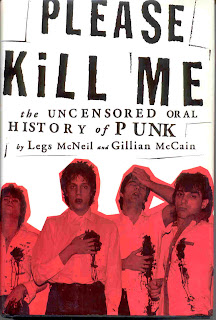 Is Please Kill Me: The Uncensored Oral History of Punk the best book ever written on punk rock? Sometimes it seems so, as it has the same vibrant energy, adolescent street-smart/smart-ass poses and grit of all those great 1970s American punk (and not-so-punk) albums like Marquee Moon, Fun House, Rocket to Russia, Blank Generation, or Plastic Letters. You won't find this approach in England's Dreaming. The book's basically a how-to for living fast and dying young and leaving behind that beautiful corpse.
Is Please Kill Me: The Uncensored Oral History of Punk the best book ever written on punk rock? Sometimes it seems so, as it has the same vibrant energy, adolescent street-smart/smart-ass poses and grit of all those great 1970s American punk (and not-so-punk) albums like Marquee Moon, Fun House, Rocket to Russia, Blank Generation, or Plastic Letters. You won't find this approach in England's Dreaming. The book's basically a how-to for living fast and dying young and leaving behind that beautiful corpse.Detailing the rise of
And yet virtually none of the artists Please Kill Me celebrates have been within spitting distance of a Billboard Hot 100 chart, or had paparazzi chase them down at an LA or NYC nightclub, or become a national icon. The two that did achieve such heights—Blondie and the Talking Heads—cleaned up the spit and the spray paint of CBGB for mass consumption. Of course now you can get your Ramones with your cell phone commercials, but once upon a time, the single “Sheena is a Punk Rocker” sent radio DJs and record company execs into paroxysms of fear and disgust.
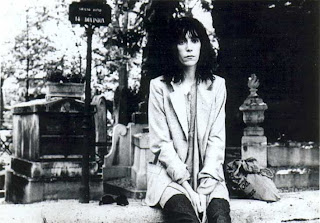
But the fact that these musicians never achieved mass acceptance doesn't mean they didn't live rock'n'roll to its limits. They did it all. And I mean all: these people, almost to a one, are seriously fucked-up misfits who could do nothing but make a singular and passionate music that created an entirely new teenage subculture. It satisfies more than adequately the reader’s desire for impolite behavior like vast drug abuse, inappropriate sexual hijinks, and tiny t-shirts; it has a myriad of folks giving the finger to society, flaunting its rules and codes by being drunk, high, both, or neither but writing lyrics like “I’m a Nazi schatze/I fight for the Fatherland/I’m a Nazi, baby, I’m a Nazi, yes I am” or “I need a fix and a kiss.” You get a cast of characters sleazier and more desperate, and with probably similar hairstyles and clothes, as found in a Dickensian stable of scoundrels and pickpockets.
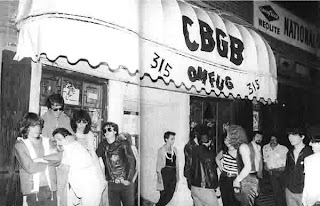
In the form of an oral history—a style that can be annoying, and isn’t really “written” so much as it is edited—Kill Me is leaps and bounds more exciting than a previous CBGB history, This Ain’t No Disco, from the late 1980s. That book has many of the same stories but here, you can actually feel the grit and the grime. But don't forget, it wasn't all Bowery beasts. Can you imagine the collective shiver that went up and down everyone's spines when Debbie Harry walked into the place?
The famous nightclub Max’s
More stories come thick and fast, told in the voices of the participants and the guilty. Joey, Johnny and Dee Dee Ramone; Johnny Thunders and David Johansen; Richard Hell and Iggy Pop, Patti Smith, Wayne Kramer and Lou Reed. Then there is the Warhol contingent, the artistes, transvestites and glamour queens; various band managers like Malcolm McLaren, Linda Stein and Danny Fields (when is that guy writing his book?); photographers and filmmakers; and countless hangers-on and groupies and girlfriends and wanna-bes. Stories criss-cross, get tangled, get contradicted. Perhaps the most harrowing tale in a book filled with close calls is the one in which Dead Boys drummer Johnny Blitz ends up nearly stabbed to death by a street gang. The guy he was trying to protect, Blondie roadie Michael Sticca, ends up in Riker's Island for a night or two. Yikes.
One might want to read this in small doses. The obnoxiousness factor is high, as is the exaggerated sense of self-importance. One can only listen to some sideliner talk about how fabulous it all was, how fabulous and decadent, before you want to say: Okay, now *who* did you fuck again, Iggy Pop or Dee Dee Ramone? Stories about Stiv Bators’ drunkenness or Johnny Thunders’ desperate junkie manipulations begin to get exhausting. Upon my first reading of this I realized that I really wouldn't want to hang out with my heroes. That's a bitter realization. I did, however, like how Steven Tyler turns up at Thunders’ funeral, wailing, "It could have been ME!" Dammit, I thought, why wasn't it?
When this book came out in hardcover from Grove Press (home to punk sympathizers like William Burroughs) in 1996, it was one of the very few widely-published works on punk rock. Bold move. 1996 was years before any of the Ramones had died, before you could hear Blondie in every other TV commercial, before Iggy sold you sea cruises, long before the New York Dolls reformed, before Hot Topic invaded shopping malls, and of course a decade before legendary rock club CBGB made front page news by closing down. Today Ramones t-shirts are de rigueur for stylin' like you're downtown, when you're really from Canada.

What signaled the end? Well, Sid Vicious’s death in
Please Kill Me, despite, and because of, its excesses is a pleasure pure and simple: hearing about these people talk about the youthful thrill of throwing off the shackles of normal life and embracing the not-yet-clichéd lifestyle of the punk demimonde is charming and inspiring. The freedom to create something almost entirely new is a rare event in pop culture, and Please Kill Me is a celebration of that. Despite the dark shadows of commercial indifference, heroin addiction, sexual perversions, band break-ups, and even death, the spark shines on through, 30 years on.

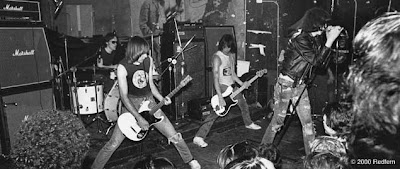
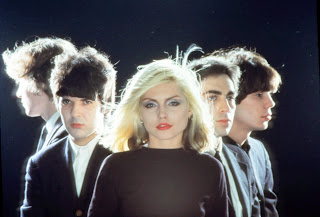
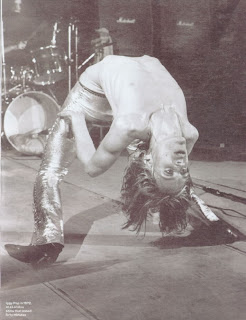
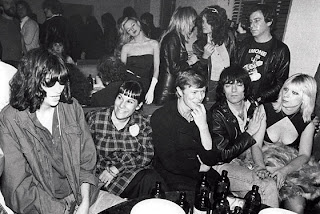
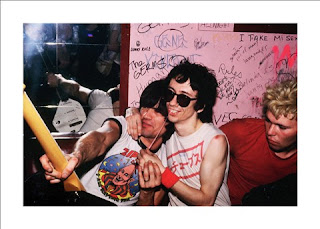
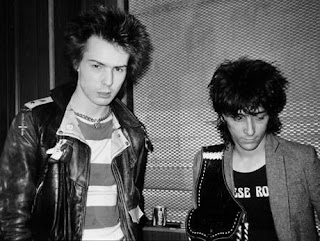
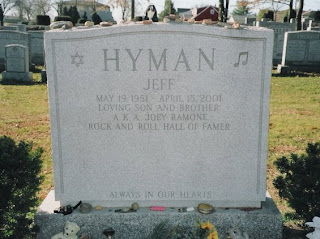
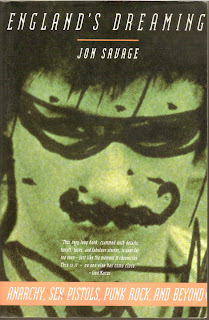
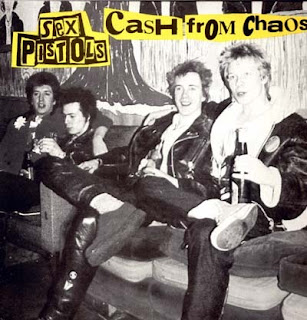

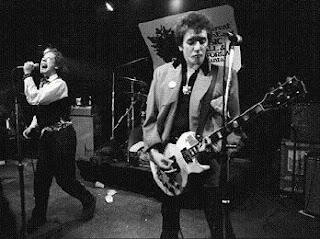
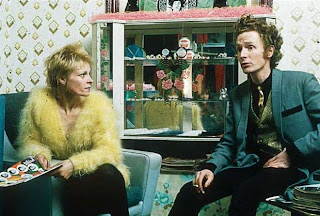
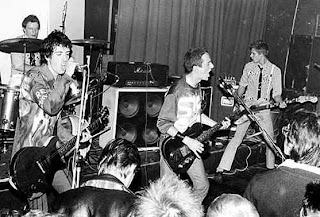
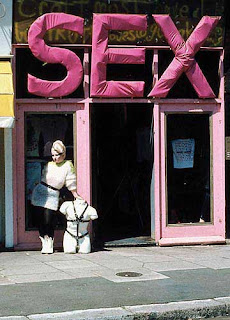
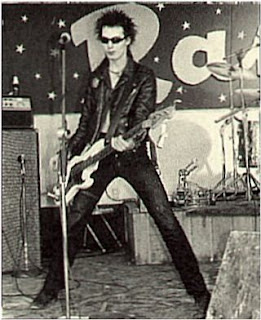
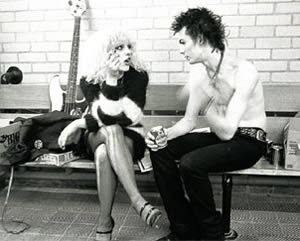
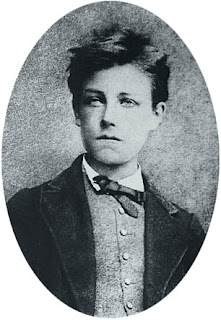

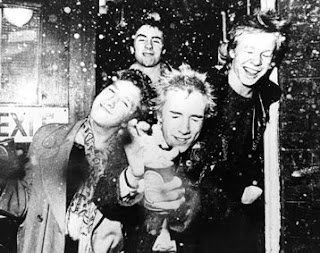
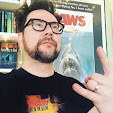












.jpg)



